Collection
Theme
- Forced marriage
- Trafficking
- Prison labour
- Forced labour
- Children
- Sexual exploitation
- Domestic slavery
- Women
- Debt bondage
Country
- China (slavery location)
- Myanmar (trafficked from)
- North Korea (trafficked from)
- China (trafficked from)
- Cambodia (trafficked from) 7 More
Date
- 2019 (Narrative date)
- 2012 (Narrative date)
- 2007 (Narrative date)
- 2010 (Narrative date)
- 2016 (Narrative date) 14 More
Type
83 results
VOICES: Narratives by Survivors of Modern Slavery
This is the world's largest archive of modern slavery survivor narratives. Across more than a million words spoken or written by survivors of modern slavery, we can see why slavery persists in particular hotspots, analyse patterns in trafficking routes, identify vulnerabilities, understand more about the challenges survivors face in liberation, and discover new antislavery solutions. These narratives offer the chance to systematically design new antislavery strategies based on the experiences, ideas and solutions of enslaved people themselves.
The database is searchable by country, name, theme, and narrative date. Narratives can be viewed in list or map form. A short introduction provides context to each narrative. Narrative provenance appears after the main narrative text.
For ideas on how to use this database, please see our accompanying guide.
Project Lead: Zoe Trodd. Team Members: Andrea Nicholson, Lauren Eglen, Rosemary Pearce, Olivia Wright.
Project Funders: AHRC Antislavery Usable Past grant (2014-19), ESRC/AHRC PaCCS Modern Slavery: Meaning and Measurement grant (2016-19), and AHRC-GCRF Antislavery Knowledge Network grant (2017-2021).
For any queries about the collection please contact: [email protected]. If you wish to cite a particular narrative, please acknowledge the survivor’s name, the provenance of the narrative and cite: Voices Database, the Rights Lab, University of Nottingham.
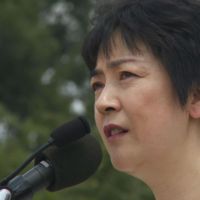
Jennifer
Hundreds of thousands of people are trafficked across international borders each year, but millions more are enslaved within their own countries. Unknown numbers have been held as slave laborers in China’s “Laogai” (labor reform camps). Created by the Chinese Communist Party under Mao Zedong,…
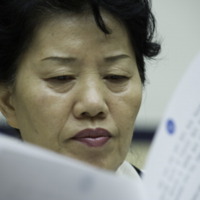
Songhwa
Songhwa Han escaped to China from North Korea in the mid-1990s. After being detained in China, she was returned to North Korea, where she was held in forced labour in a state prison camp. While living in China as a refugee she also endured forced marriage, domestic abuse, detention, and official…
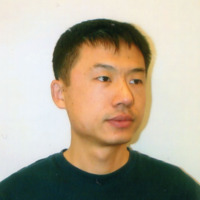
Sam
Unknown numbers of people have been held as slave laborers in China’s “Laogai” (labor reform camps). Human rights organizations claim that Falon Gong practitioners are often targeted for arrest, along with ethnic minorities, Catholics, Protestants, and Tibetans. By some estimates around…
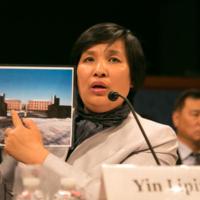
Yin Liping
Yin Liping is a Falun Gong practitioner who was enslaved as a political prisoner in China. She was arrested seven times between 2000 and 2013, tortured, and incarcerated in labour camps, including the Masanjia Labor Camp, during three of her detentions. In August 2013, she escaped from China to…
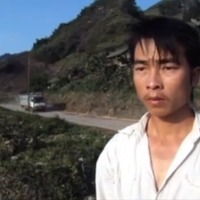
Trong
China remains a source, transit and destination country for men, women and children subject to forced labour. There have been a number of media reports exposing cases of forced labour in the country, especially among the disabled whose families are unable to care for them and with an underdeveloped…

Xiaoxiang
Minority children and those from very poor families are extremely vulnerable to trafficking in China. A highly organised practice exists where couples have children for the very purpose of selling them. Children from minorities are also deceived into trafficking under the false promise of work in…
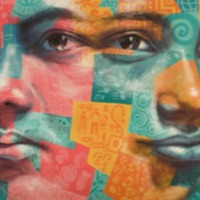
Mai A
The internal migration of Chinese people seeking work has created an opportunity for human traffickers in China. Moreover the gender imbalance caused by the One Child Policy and the cultural preference for male children, has caused a shortage of women which has led to the trafficking of women to be…

Park Ji-hyun
The Democratic People’s Republic of Korea (North Korea) is a source country for men, women and children who are subjected to forced labour and sex trafficking. Government oppression in the DPRK prompts many North Koreans to flee the country in ways that make them vulnerable to human…

Qui
China remains a source, transit and destination country for the seuxal exploitation of women and children. Women are lured through false promises of legitimate employment and trafficked into commercial sexual exploitation from countries such as Mongolia, Burma, North Korea, Russia, Vietnam,…

Neng
The internal migration of Chinese people seeking work has created an opportunity for human traffickers in China. Moreover the gender imbalance caused by the One Child Policy and the cultural preference for male children, has caused a shortage of women which has led to the trafficking of women to…

Ly
Minority children and those from very poor families are extremely vulnerable to trafficking in China. A highly organised practice exists where couples have children for the very purpose of selling them. Children from minorities are also deceived into trafficking under the false promise of work in…

Huong
China remains a source, transit and destination country for the sexual exploitation of women and children. Women are lured through false promises of legitimate employment and trafficked into commercial sexual exploitation from countries such as Mongolia, Burma, North Korea, Russia, Vietnam,…
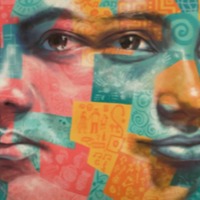
Noi
The internal migration of Chinese people seeking work has created an opportunity for human traffickers in China. Moreover, the gender imbalance caused by the One Child Policy and the cultural preference for male children, has caused a shortage of women which has led to the trafficking of women to…
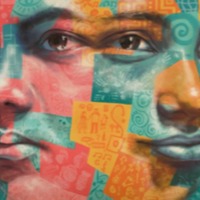
Esther Choe
The Democratic People’s Republic of Korea (North Korea) is a source country for men, women and children who are subjected to forced labour and sex trafficking. Government oppression in the DPRK prompts many North Koreans to flee the country in ways that make them vulnerable to human…

Bopha
The internal migration of Chinese people seeking work has created an opportunity for human traffickers in China. Moreover the gender imbalance caused by the One Child Policy and the cultural preference for male children, has caused a shortage of women which has led to the trafficking of women to be…

Lina
The internal migration of Chinese people seeking work has created an opportunity for human traffickers in China. Moreover the gender imbalance caused by the One Child Policy and the cultural preference for male children, has caused a shortage of women which has led to the trafficking of women to be…

Chin Soon
The Democratic People’s Republic of Korea (North Korea) is a source country for men, women and children who are subjected to forced labour and sex trafficking. Government oppression in the DPRK prompts many North Koreans to flee the country in ways that make them vulnerable to human trafficking…

Mee Yon
The Democratic People’s Republic of Korea (North Korea) is a source country for men, women and children who are subjected to forced labour and sex trafficking. Government oppression in the DPRK prompts many North Koreans to flee the country in ways that make them vulnerable to human trafficking…

Sook Joo
The Democratic People’s Republic of Korea (North Korea) is a source country for men, women and children who are subjected to forced labour and sex trafficking. Government oppression in the DPRK prompts many North Koreans to flee the country in ways that make them vulnerable to human trafficking…
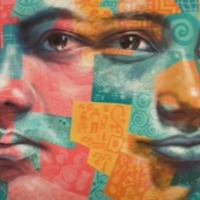
Aye Aye
The internal migration of Chinese people seeking work has created an opportunity for human traffickers in China. Moreover the gender imbalance caused by the One Child Policy and the cultural preference for male children, has caused a shortage of women which has led to the trafficking of women to be…